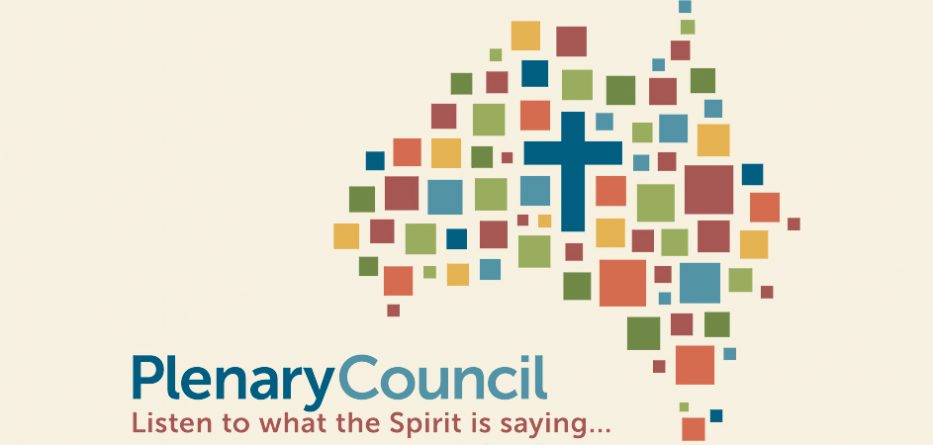Homily for the Sixth Sunday of Easter Year C
Readings: Acts 15:1-2, 22-29; Psalm 66(67):2-3, 5-6, 8; Apocalypse 21:10-14, 22-23; John 14:23-29
22 May 2022
All week, we’ve been listening to the showdown in the Acts of the Apostles which results in the compromise announced in today’s first reading. There’d been a long running controversy in Antioch about whether Gentile men who had become Christians needed to be circumcised ‘in the tradition of Moses’. Some Jewish Christians from Judaea had come and insisted on this need for compliance with Jewish law. Paul and Barnabas had a long argument with them. The scripture scholar Luke Timothy Johnson says “disagreement and dissent played an important role in forcing the discernment of the essential from the accidental, the genuine from the false”.[1]
LISTEN: https://soundcloud.com/frank-brennan-6/homily-22522
When the local disagreement could not be resolved, they decided to go to Jerusalem to “discuss the question with the apostles and the elders”. Arriving in Jerusalem, they did much more than discuss the thorny question of circumcision “They gave an account of all that God had done through them.” The Pharisees put the case for circumcision. A long discussion ensued, after which Peter delivered his address. Peter told those apostles who had remained in Jerusalem that he had been commissioned to bring the good news to the Gentiles and that God had bestowed the Holy Spirit on them just as He had on the Jewish Christians in Jerusalem. “God had made no distinction between them and us.” So why the need for imposing distinctively Jewish burdens on the Gentiles?
The apostles and elders also heard from Barnabas and Paul who “described all the signs and wonders God had worked through them among the Gentiles”. In the end, it fell to James as the leader of the Church in Jerusalem to deliver a ruling. His verdict was that “instead of making things more difficult for Gentiles who turn to God, we should send them a letter” stipulating a few minimum requirements aimed at facilitating ready communion between Jews and Gentiles without offending Jewish sensibilities on matters such as illicit marriages, food polluted by idols and “meat of strangled animals and from blood”.
The apostles and elders sent delegates to Antioch to accompany Barnabas and Paul and to carry a letter declaring the verdict, acknowledging that those who had previously come from Jerusalem disturbing the church members at Antioch had acted without authority. The delegates were to confirm by word of mouth what was written: that it was not just the Jerusalem authorities but also the Holy Spirit that had decided that there would be no insistence on circumcision but only compliance with a few measures aimed at facilitating Jewish and Gentile communion.
As we prepare for the second session of our Plenary Council, we find ourselves in a similar situation with controversy and disputation on a number of fronts. Last week, 12 members of the Plenary Council joined with 72 other committed parishioners writing to the authorities charged with the conduct of the Plenary Council. They claimed:
“Decisions are increasingly taken by a small group, with limited effective involvement of the members of the Council or of the periti. The broader people of God – priests, religious and other laity – are entirely excluded. This was made clear by the decision not to release the Towards the Second Assembly document to the wider Church.” They regarded this decision as a significant governance failure.
They expressed criticism of the Towards the Second Assembly document because of the issues which in their opinion receive limited attention including “the unequal position of women, the promotion of humble leadership, building stronger parishes, making the liturgy more relevant and making the Church more open to those currently excluded, such as victims of abuse, those divorced and remarried and members of the LGBTQIA community.”
These people are not trouble makers. They may see things differently from many of the bishops who hold deliberative votes in the Plenary Council, and from those who laboured over the summer to put together parts of the Towards the Second Assembly document. But their grievances need to be heard. There is a need for respectful dialogue. In the end, those in authority will need to make a determination, but not before hearing the grievances and acknowledging that God has bestowed the Holy Spirit on those with grievances, just as the Spirit is bestowed on those charged with overseeing the conduct of the Plenary Council. There is a need to appreciate all the signs and wonders worked particularly through the laypeople who have laboured long and hard to hand on the faith to their children and to introduce a rather monarchical Church to the principles of good governance.
Being attentive to the concerns of the petitioning faithful, I recalled the tragic case of Bishop William Morris who was removed from office a decade ago. The start of his troubles was a pastoral letter he had written for Advent 2006 when he said:[2]
Given our deeply held belief in the primacy of Eucharist for the identity, continuity and life of each parish community, we may well need to be much more open towards other options of ensuring that Eucharist may be celebrated. Several responses have been discussed internationally, nationally and locally
-
-
- ordaining married, single or widowed men who are chosen and endorsed by their local parish community
- welcoming former priests, married or single back to active ministry
- ordaining women, married or single
- recognising Anglican, Lutheran and Uniting Church Orders
-
While we continue to reflect carefully on these options we remain committed to actively promoting vocations to the current celibate male priesthood and open to inviting priests from overseas.
His remarks about the possible ordination of women, married priests, and recognition of other orders were always subject to the caveat: ‘Rome willing’. To make this caveat abundantly clear, he had published a clarification of his pastoral letter on his website saying:[3]
In my Advent Pastoral Letter of 2006 I outlined some of the challenges facing the diocese into the future. In that letter I made reference to various options about ordination that were and are being talked about in various places, as part of an exercise in the further investigation of truth in these matters. Unfortunately some people seem to have interpreted that reference as suggesting that I was personally initiating options that are contrary to the doctrine and discipline of the Church. As a bishop I cannot and would not do that and I indicated this in the local media at the time.
But that was not enough to save him, regardless of all the signs and wonders God had worked through him among the Catholics in outback Queensland with an ever diminishing number of celibate male clergy able to provide eucharist to the people as far afield as Birdsville and Quilpie. In his Apostolic Exhortation Evangelii Gaudium, Pope Francis says:[4]
I prefer a Church which is bruised, hurting and dirty because it has been out on the streets, rather than a Church which is unhealthy from being confined and from clinging to its own security. I do not want a Church concerned with being at the centre and which then ends by being caught up in a web of obsessions and procedures. If something should rightly disturb us and trouble our consciences, it is the fact that so many of our brothers and sisters are living without the strength, light and consolation born of friendship with Jesus Christ, without a community of faith to support them, without meaning and a goal in life. More than by fear of going astray, my hope is that we will be moved by the fear of remaining shut up within structures which give us a false sense of security, within rules which make us harsh judges, within habits which make us feel safe, while at our door people are starving and Jesus does not tire of saying to us: ‘Give them something to eat’ (Mk 6:37).
After attending the huge farewell mass for William Morris in Toowoomba, James Foley, bishop of Cairns had written to the Toowoomba church leadership team saying:[5]
The reasons, the causes and the motivations for what has occurred may be known only unto God, Who alone may judge. Consistently and officially it has been stated that neither Bill’s own integrity nor his pastoral effectiveness are questioned. The fruits— the proof—of this were palpably evident in Sunday’s celebration. Now, after almost two decades attending episcopal testimonials and funerals, I have never witnessed so simple yet profound an outpouring of appreciation and love. As one of the other bishops there observed afterwards: The best way to go may be to get sacked! . . . Never have I been more struck than by the sincerity and depth of Faith at this recent Mass of Thanksgiving. The solid no-nonsense Catholic Faith of the people of the Toowoomba Diocese was un-self-consciously and un-pretentiously on display.
Christ’s faithful in Toowoomba wanted nothing more than the truth a decade ago, and they’re still waiting. William Morris was removed from office; he did not resign. He always displayed the highest pastoral integrity and paid the price for it. He was the consummate team player who planned his pastoral strategies in close consultation with his presbyterate and the various consultative organs he set up in the diocese. As the people of Toowoomba continue to live faithful lives as Catholics, they still hold Bill in high esteem; meanwhile all the people in Rome who played a role in the dismissal are now gone.
I had the privilege of launching Bishop Morris’s book back in 2014 and I concluded with these words:
“I imagine it is still not possible for Pope Francis to apologise for the wrong done to Bishop Morris and the Diocese of Toowoomba. The Roman Curia and its mindset would at least have that much of a hold over him. But would not it be a grace for everyone, including those who perpetrated the wrong if he did? On your behalf, I do apologise to William Morris in the name of Christ’s faithful here gathered ..… I commend the author to your prayers as he continues to minister as a bishop in good standing, convinced that ‘the Church is at its best when it is most transparent, when the eyes of justice and the eyes of the Gospel are so clear that all rights are respected for individuals, no matter who they are in the community’.”
As we prepare for the second general assembly of the Plenary Council, we need to differentiate the essential from the accidental, the genuine from the false. Let’s not be afraid of disagreement. Let’s speak up. Then, and only then, let us accept the rulings of those with deliberative votes who hopefully will prescribe only those regulations needed to ensure fraternal communion amongst us, regardless of our differences. There was a time and place in Christendom when the Pharisees’ insistence on circumcision made sense. But now it makes no sense at all. We need to be attentive to the calls of the faithful and the promptings of the Spirit suggesting that access to the Eucharist should prevail over the prescription of a celibate male priesthood.
O God, be gracious and bless us
And let your face shed its light upon us.
So will your ways be known upon earth
And all nations learn your saving help.
Fr Frank Brennan SJ is the Rector of Newman College, Melbourne, and the former CEO of Catholic Social Services Australia (CSSA). He has been appointed a peritus at the Fifth Plenary Council of the Australian Catholic Church.
[1] Luke Timothy Johnson, The Acts of the Apostles, Sacra Pagina Series (Collegeville, MN: The Liturgical Press, 1992), p. 279.
[2] William Morris, Benedict, Me and the Cardinals Three, (Adelaide: ATF Press, 2014), p. 324
[3] Ibid, p. 354.
[4] Pope Francis, Evangelii Gaudium, 2013, #49
[5] James Foley, Letter to Toowoomba Catholic Church leaders, 31 August 2011, in Horizons, Toowoomba Diocese, October 2011, 19.








